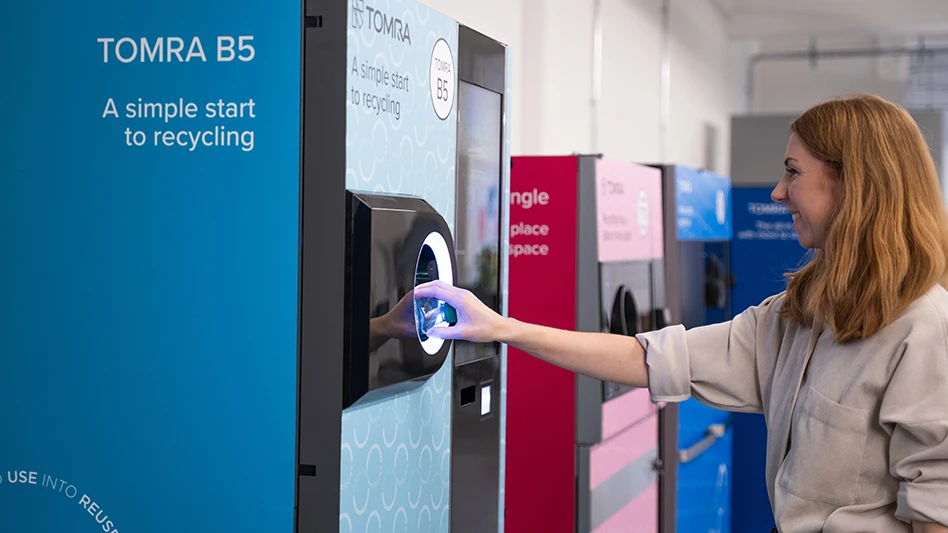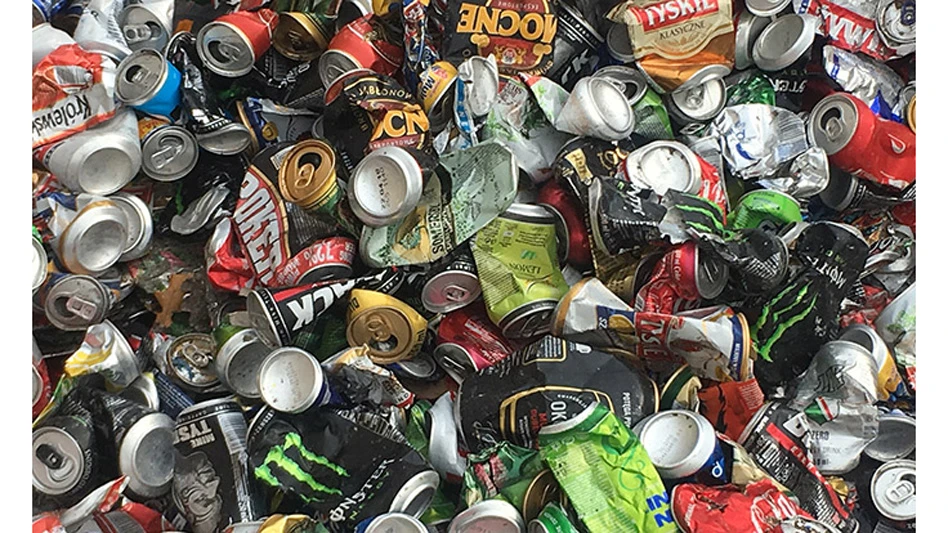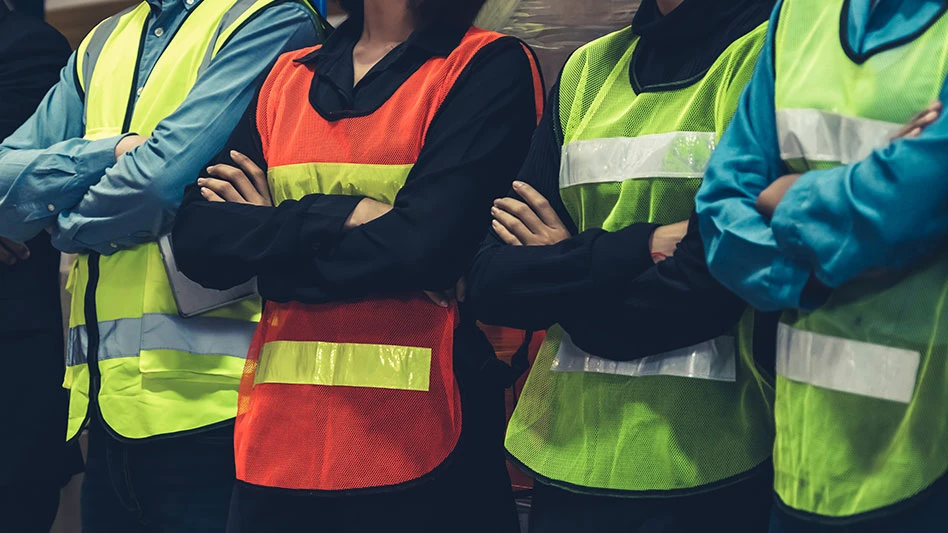The Association of Postconsumer Plastics Recyclers (APR), Washington, has called on grocery store chains to increase their internal collection and recycling of rigid plastics. The APR notes that it recently released a study that demonstrates starting or increasing rigid plastics recycling in grocery stores makes economic sense by reducing the costs to landfilling the material and generating revenue through the sale of the commodities.
Supporting this push, in 2013 the APR developed the Grocery Store Recycling Program. The project targets the recovery of HDPE (high-density polyethylene) and polypropylene (PP) trays, pails and covers.
Supporting this push, in 2013 the APR developed the Grocery Store Recycling Program. The project targets the recovery of HDPE (high-density polyethylene) and polypropylene (PP) trays, pails and covers.
 |
| Properly nested bin with bagged lids on top, ready for shipment to a recycling center. |
Meanwhile, in 2014, the APR released a case study of multiple rigid plastic recycling programs at grocery stores that showed an average conventional supermarket generates 80 to 150 pounds per week of rigid plastic containers within the bakery, deli, seafood and pharmacy departments. The study identified the economic benefits of recycling rigid plastics in supermarkets, including lower waste disposal costs, as well as potential new revenue from marketing these materials.
“There is tremendous demand for these containers from grocery stores,” says Scott Saunders, general manager of KW Plastics, Troy, Alabama, and chairman of the APR. “Because it is generally clean and already separated, grocers should be able to generate substantial revenue should they make this material available for recycling.”
The case studies reveal that removing 5,000 to 7,000 pounds of bulky rigid plastics from local landfills not only lowers grocer’s annual waste disposal costs, but also can generate new recycling revenue through volume marketing. The studies found that a 1,000-pound bale of recycled rigid plastic can be worth $100 to $200, while cardboard is generally worth $20 to $30.
“Our studies show there is at a minimum of at least 350 million pounds of good, clean material available through stores for recycling,” says Steve Alexander, APR executive director. “That is a great potential source of new material for recyclers, and a new revenue stream for stores. We are excited about the project, and expect to see it grow dramatically in the next few years.”
For more information about the economic benefits of recycling rigid plastics in supermarkets, visit the Grocery Store Recycling Program's website at www.recyclegroceryplastics.org.
“There is tremendous demand for these containers from grocery stores,” says Scott Saunders, general manager of KW Plastics, Troy, Alabama, and chairman of the APR. “Because it is generally clean and already separated, grocers should be able to generate substantial revenue should they make this material available for recycling.”
The case studies reveal that removing 5,000 to 7,000 pounds of bulky rigid plastics from local landfills not only lowers grocer’s annual waste disposal costs, but also can generate new recycling revenue through volume marketing. The studies found that a 1,000-pound bale of recycled rigid plastic can be worth $100 to $200, while cardboard is generally worth $20 to $30.
“Our studies show there is at a minimum of at least 350 million pounds of good, clean material available through stores for recycling,” says Steve Alexander, APR executive director. “That is a great potential source of new material for recyclers, and a new revenue stream for stores. We are excited about the project, and expect to see it grow dramatically in the next few years.”
For more information about the economic benefits of recycling rigid plastics in supermarkets, visit the Grocery Store Recycling Program's website at www.recyclegroceryplastics.org.
Latest from Recycling Today
- ReMA urges open intra-North American scrap trade
- Axium awarded by regional organization
- China to introduce steel export quotas
- Thyssenkrupp idles capacity in Europe
- Phoenix Technologies closes Ohio rPET facility
- EPA selects 2 governments in Pennsylvania to receive recycling, waste grants
- NWRA Florida Chapter announces 2025 Legislative Champion Awards
- Goldman Sachs Research: Copper prices to decline in 2026





